The Benefits of SBA Loans for Small Businesses
Lets Get Started
Starting and growing a small business can be a challenging endeavor. One of the primary obstacles faced by many entrepreneurs is obtaining the necessary funding to support their business operations. The U.S. Small Business Administration (SBA) offers a variety of loan programs designed to help small business owners obtain the financing they need to succeed. In this blog post, we’ll explore the benefits of SBA loans for small businesses and how they can be valuable resources for entrepreneurs.
What are SBA Loans?
SBA loans are a type of small business loan offered by lenders, such as banks and credit unions, which are partially guaranteed by the U.S. Small Business Administration. This SBA guarantee reduces the risk for lenders, making it more likely for them to approve loans for small businesses that might not otherwise qualify for traditional bank loans. After all, if a borrower cannot repay their loan, the lender doesn’t lose very much money.
SBA loans can be used for various purposes, including working capital, purchasing equipment, real estate, and refinancing existing debt.
Types of SBA Loans
Several types of SBA loans are available to small business owners, each designed to meet specific needs. Some of the most popular SBA loan programs include:
SBA 7(a) Loan Program
The SBA 7(a) Loan Program is the most popular and versatile among the SBA loan options. These term loans can be used for a wide range of purposes, including buying commercial real estate, working capital, business expansion, equipment and inventory purchases, and even refinancing existing business debt. The maximum loan amount for an SBA 7(a) loan is $5 million, with repayment terms varying between 10 and 25 years, depending on the loan’s purpose.
Industries that could benefit from SBA 7(a) loans include:
Professional service providers (e.g. accounting firms, etc.)
Manufacturing companies
SBA 504 Loan Program
The SBA 504 Loan Program is designed for businesses that need financing for major fixed assets such as real estate, land, and heavy machinery. These loans can be used for the purchase, construction, or renovation of commercial property and the purchase and installation of large equipment. The SBA 504 loans are typically structured with a CDC (Certified Development Company) providing 40% of the loan amount, a private lender providing 50%, and the borrower contributing a 10% down payment. The maximum SBA 504 loan amount is $5 million (or up to $5.5 million for certain eligible energy-efficient projects).
Industries that could benefit from SBA 504 loans include:
Manufacturing facilities
Hotels and hospitality businesses
Medical facilities
Childcare centers
SBA Microloan Program
The SBA Microloan Program is designed to provide small businesses and nonprofit organizations with loans of up to $50,000. These loans can be used for working capital, inventory, equipment, and other business expenses. However, they cannot be used for real estate purchases or to refinance debt. The repayment terms for SBA Microloans vary but can go up to six years.
Industries that could benefit from SBA Microloans include:
New businesses
Small retail shops
Artisan and craft businesses
Professional consultants
Food trucks and mobile businesses
Additional SBA Loan Programs
SBA Express Loan Program
The SBA Express Loan Program offers expedited loan processing for small businesses needing financing up to $350,000. These loans can be used for various purposes, including working capital, equipment purchases, and business expansion. The repayment terms for SBA Express loans are similar to those of the SBA 7(a) loan program.
Industries that could benefit from SBA Express loans include:
E-commerce businesses
Franchise businesses
Professional service providers (e.g., marketing agencies, IT consultants)
SBA CAPLines Program
The SBA CAPLines Program provides lines of credit for small businesses that need short-term working capital to manage cash flow, seasonal fluctuations, or other short-term needs. There are four types of CAPLines: Seasonal CAPLines, Contract CAPLines, Builders CAPLines, and Working Capital CAPLines. The maximum amount for a CAPLines loan is $5 million, with repayment terms typically up to 10 years.
Industries that could benefit from SBA CAPLines include:
Construction companies
Seasonal businesses (e.g., landscaping, holiday retail)
Government contractors
Benefits of SBA Loans for Small Businesses
SBA loans offer numerous benefits to small business owners, including:
Competitive Interest Rates
One of the most significant advantages of SBA loans is their competitive interest rates. Since the Small Business Administration partially guarantees these loans, lenders are often willing to offer lower interest rates compared to conventional loans. This can result in significant savings for small business owners over the life of the loan.
Longer Repayment Terms
SBA loans often come with longer repayment terms than traditional bank loans, making monthly payments more manageable for small business owners. This can be especially helpful for startups and businesses with fluctuating cash flow, as it allows them to better manage their finances and plan for the future.
Lower Down Payment Requirements
Many SBA loans, particularly those used for purchasing real estate or equipment, have lower down payment requirements compared to conventional loans. This allows small business owners to conserve their cash for other business needs, such as inventory, marketing, or hiring employees.
Access to Working Capital
SBA loans provide small businesses with much-needed working capital to help them grow and expand. Whether it’s used for purchasing inventory, hiring employees, or covering day-to-day expenses, access to working capital can be critical for a business’s success.
Support for Underserved Communities
The Small Business Administration aims to support entrepreneurs from underserved communities, including women, minorities, and veterans. SBA loans offer these business owners an opportunity to access financing that might otherwise be unavailable to them through traditional lending channels.
Expert Guidance and Assistance
SBA lenders and resource partners, such as Small Business Development Centers (SBDCs) and SCORE, provide expert guidance and assistance to small business owners throughout the loan application process. This support can help entrepreneurs navigate the complex world of business financing and increase their chances of success.
When is an SBA Loan not the option?
SBA loans, while they can be beneficial for certain businesses, may not always be the best option for every situation. One of the main drawbacks of SBA loans is the lengthy and complex application process. These loans often require extensive documentation, financial statements, and collateral, which can be time-consuming and burdensome for small businesses. Moreover, the approval process itself can take several weeks or even months, making them unsuitable for businesses in urgent need of funds.
Another drawback of SBA loans is the strict eligibility criteria. To qualify for an SBA loan, businesses must meet certain requirements, including a strong credit history, collateral, and a demonstrated ability to repay the loan. This can pose a challenge for businesses with less-than-ideal credit scores or those that lack sufficient collateral. Additionally, SBA loans typically have fixed interest rates, which may not be competitive compared to other financing options available in the market.
In contrast, merchant cash advances (MCAs) can offer a faster and more accessible funding solution for businesses, particularly those in need of immediate capital or with less-than-perfect credit. MCAs work by providing businesses with a lump sum upfront in exchange for a share of the businesses’ future revenue. This structure allows for flexibility, as the amount repaid is directly tied to the business’s revenue and can fluctuate as revenues rise and fall.
One of the significant advantages of MCAs is the speed of funding. Unlike SBA loans, which can take weeks or months, merchant cash advances can often be approved and funded within a matter of days. This quick turnaround can be crucial for businesses facing urgent financial needs to cover unforeseen expenses or unexpected opportunities.
Furthermore, merchant cash advances are more accessible to businesses with lower credit scores. Since the funding is based on future sales, MCAs are an option for businesses that may not qualify for traditional bank loans. This makes MCAs a viable choice for startups or businesses that have faced financial challenges in the past.
In the end, do research to understand what your the best financing option is for your company.





